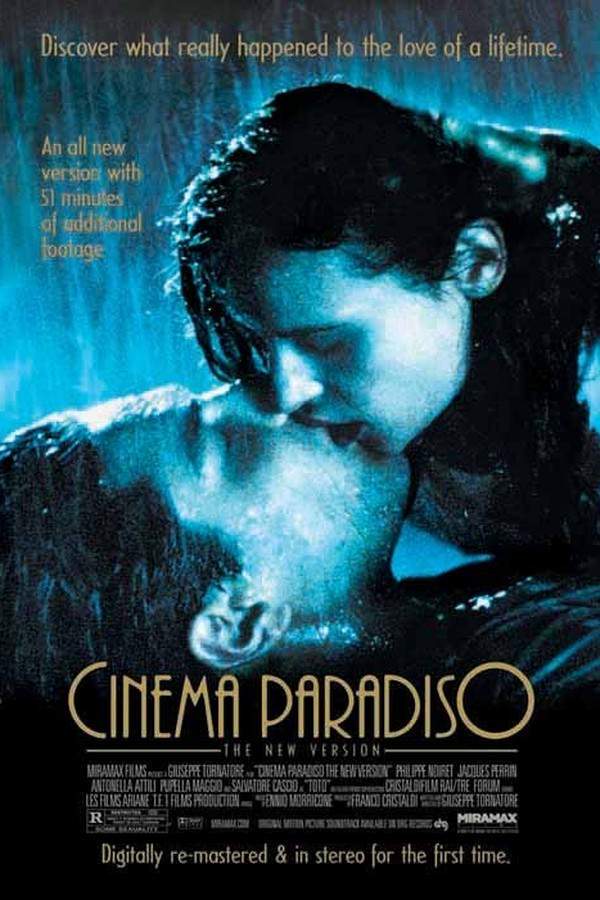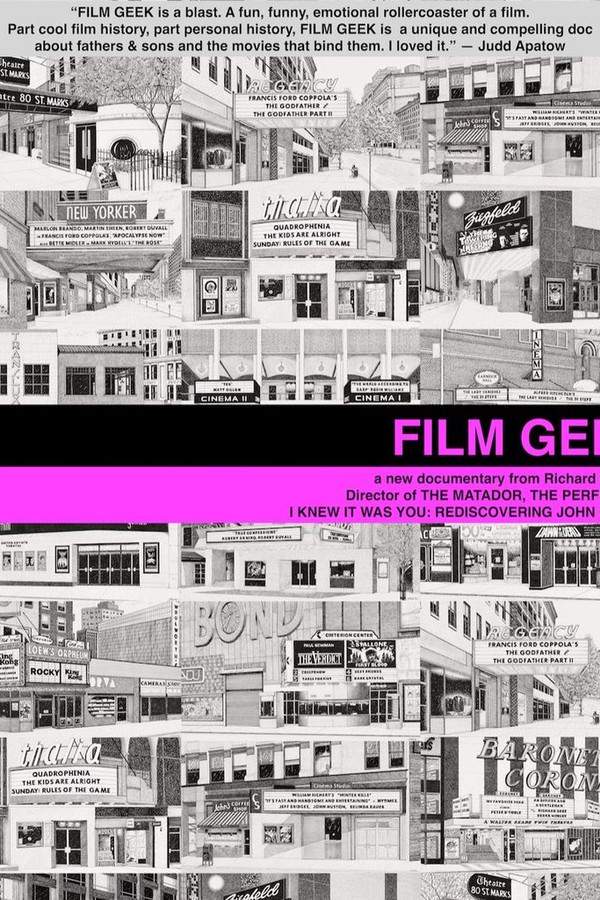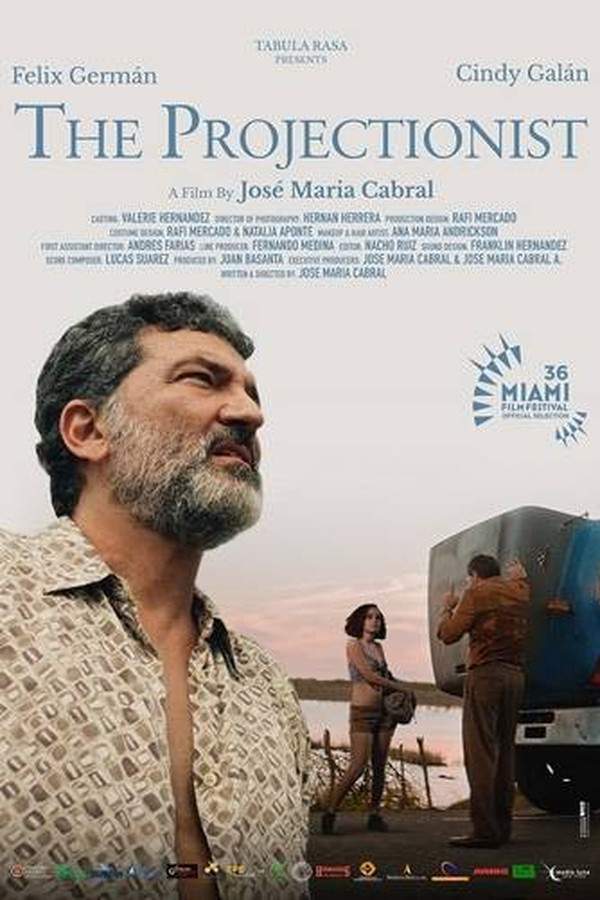
The Projectionist 2020
Directed by
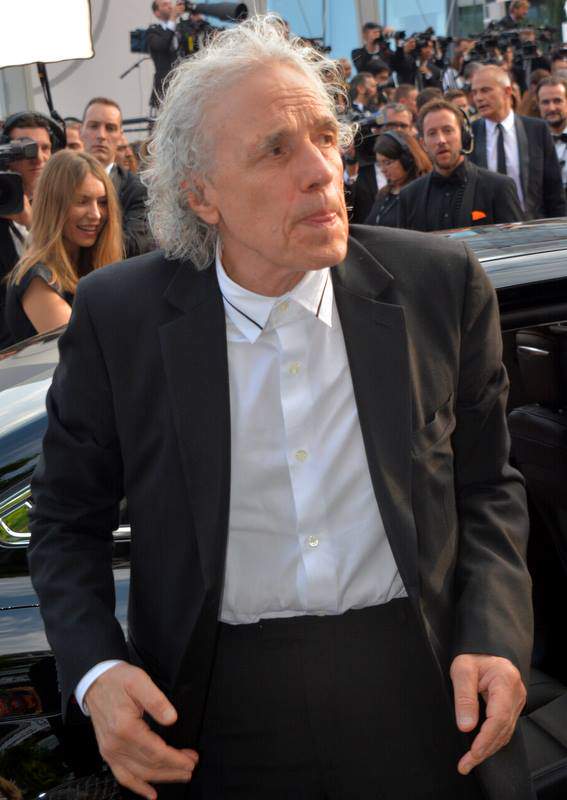
Abel Ferrara
Made by
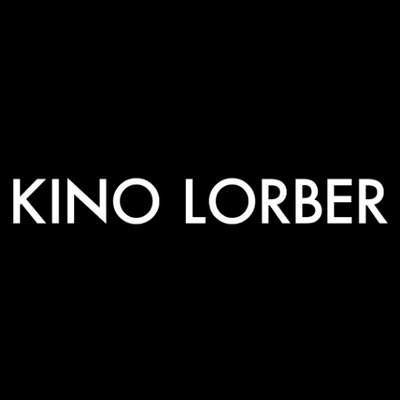
Kino Lorber
Test your knowledge of The Projectionist with our quiz!
The Projectionist Plot Summary
Read the complete plot summary and ending explained for The Projectionist (2020). From turning points to emotional moments, uncover what really happened and why it matters.
Chuck McCann, a dedicated projectionist, is introduced as he navigates the projection booth equipment, leading into the opening credits of The Projectionist. The story unfolds at the Midtown Theater in Manhattan, overseen by the domineering manager, Renaldi, who shows no mercy in berating his staff. While Chuck immerses himself in the projection booth, he daydreams of being the heroic Captain Flash. When Harry, an usher, steps into the booth to express dissatisfaction regarding Renaldi, Chuck shares his infatuation with a captivating woman he refers to as “The Girl”. This moment is interrupted by Renaldi, who harshly reprimands Harry for breaking the rules and gives Chuck a dressing-down for leaving a cigarette butt behind.
Feeling disheartened, Chuck rewinds a film reel while tuning in to a dismal radio broadcast that states, > “the way I see things, I’m not very optimistic at all, I just don’t think there’s much hope for the future.” This grim commentary is juxtaposed with an alarming movie trailer announcing The Terrible World of Tomorrow which warns viewers of a bleak future filled with dehumanization and violence. The broadcast goes on, “no.. how can we disagree with Doctor Masters… gentlemen… gentlemen… gentlemen… what we’re missing is the point about…”
As the end of his shift approaches, Chuck reflects on his surroundings, admiring movie star photographs adorning the booth’s wall. He begins to entertain himself by impersonating legendary figures like Humphrey Bogart, quoting lines from classics such as The Treasure of the Sierra Madre, The Caine Mutiny, and The Maltese Falcon, even mimicking the grand Sydney Greenstreet for good measure. His repertoire extends to Wallace Beery in Min and Bill, John Wayne in The Green Berets, James Stewart in The Spirit of St. Louis, and Clark Gable in Gone with the Wind, showcasing his talent for voice mimicry. In a nostalgic moment, he glances at a photo of Laurel and Hardy, recreating their iconic voices with lines like, “Say goodnight Stanley,” followed by the reply, “Goodnight Stanley.” In a dramatic flair, he concludes his performance with Bogart’s memorable farewell, “So long, Fred C. Dobbs.”
Amidst the monotony of his day-to-day life, Chuck yearns for excitement and romantic escapades, which fuels his fantasies of being Captain Flash. He imagines Renaldi morphing into the villainous figure known as The Bat, who commands a gang of six henchmen and seeks dominion over an X-ray device created by a wise old scientist. This scientist, with a distinct accent, is actually the elderly man who manages the theater’s candy concession. In a thrilling twist, The Bat abducts the scientist’s stunning daughter, who teams up with Captain Flash, demonstrating her fierce karate skills. Together, they triumph over The Bat and twirl into a vibrant Busby Berkeley-style musical number.
The Projectionist Timeline
Follow the complete movie timeline of The Projectionist (2020) with every major event in chronological order. Great for understanding complex plots and story progression.
Introduction of Chuck McCann
The film opens with Chuck McCann, a dedicated projectionist, as he skillfully navigates the complex equipment in the projection booth. This sets the stage for his character while smoothly transitioning into the opening credits of *The Projectionist*.
Renaldi's Dominance
At the Midtown Theater, the harsh manager Renaldi shows no mercy to his staff, exemplifying a toxic work environment. He frequently berates employees, enforcing strict adherence to rules and adding to the tension within the theater.
Chuck's Daydreams
While working in the projection booth, Chuck daydreams of becoming Captain Flash, a heroic figure he aspires to emulate. This dream offers him an escape from the drudgery of his daily tasks and the oppressive atmosphere set by Renaldi.
Harry's Discontent
Harry, an usher, enters the projection booth to express his dissatisfaction with Renaldi's management style. Chuck empathizes with him and reveals his crush on a captivating woman he refers to as 'The Girl', sharing a moment of camaraderie amidst the stress.
Renaldi's Harsh Reprimand
Renaldi interrupts their conversation, harshly reprimanding Harry for breaking the theater rules. He then chastises Chuck for leaving a cigarette butt behind, further highlighting his domineering personality and the fear he instills in his employees.
Gloomy Radio Broadcast
As the end of his shift approaches, Chuck rewinds a film reel while listening to a pessimistic radio broadcast. The host expresses a grim outlook on the future, echoing Chuck's own feelings of disillusionment.
Trailer for *The Terrible World of Tomorrow*
An alarming film trailer for *The Terrible World of Tomorrow* plays, depicting a future rife with violence and dehumanization. This trailer serves as a stark contrast to Chuck's hopeful daydreams and reflects the dark themes prevalent in society.
Impersonations and Nostalgia
Chuck entertains himself by impersonating classic movie stars while quoting memorable lines from iconic films. His ability to mimic characters like Humphrey Bogart and John Wayne showcases his passion for cinema and serves as a form of escapism.
Chuck's Yearning for Excitement
Feeling stalled in his mundane life, Chuck yearns for adventure and romance, fueling his fantasies of being Captain Flash. This desire allows him to escape the dreariness of his everyday responsibilities and seek joy in his imagination.
Transformation into Captain Flash's Universe
In his daydreams, Chuck creates a dramatic narrative where Renaldi becomes the villain known as The Bat, overseeing a nasty gang. This transformation serves to highlight Chuck's desire to break free from oppression and embrace heroism.
The Abduction of the Scientist's Daughter
In an exhilarating twist of Chuck's imagination, The Bat abducts the daughter of a wise scientist managing the candy concession. This plot setup adds tension and stakes to Chuck's heroic fantasy.
Captain Flash's Triumph
In his daydream, Captain Flash teams up with the scientist's fierce daughter, who showcases her impressive karate skills. Together, they battle against The Bat, embodying the classic struggle between good and evil.
A Busby Berkeley-style Finale
The climax of Chuck's fantasy culminates in a vibrant musical number reminiscent of Busby Berkeley's style. This joyous finale encapsulates his longing for excitement and celebration, contrasting starkly with his dreary reality.
The Projectionist Characters
Explore all characters from The Projectionist (2020). Get detailed profiles with their roles, arcs, and key relationships explained.
Chuck McCann
Chuck McCann is a dedicated projectionist trapped in a monotonous routine, who yearns for excitement and adventure. His vivid imagination transports him into the role of Captain Flash, allowing him to escape from the oppression of his daily life. Chuck’s ability to impersonate iconic film stars highlights both his creativity and unfulfilled aspirations.
Renaldi
Renaldi serves as the domineering manager of the Midtown Theater, embodying strict authority with little regard for his staff. His harsh demeanor creates tension and unease within the theater, making him a significant obstacle for Chuck and his colleagues. He is a symbol of the oppressive reality that contrasts starkly with the fantasies of the characters.
Harry
Harry, an usher at the Midtown Theater, represents the relatable voice of discontent among the staff. He expresses dissatisfaction with Renaldi's management style, drawing attention to the struggles of the theater employees. His interactions with Chuck provide a glimpse into the camaraderie that exists despite the oppressive atmosphere.
The Projectionist Settings
Learn where and when The Projectionist (2020) takes place. Explore the film’s settings, era, and how they shape the narrative.
Time period
The film's narrative unfolds in a contemporary setting, allowing the themes of hope and fantasy to resonate with the audience. The period is marked by a juxtaposition of mundane realities and a yearning for escapism through cinema. While specific historical markers are absent, the atmosphere captures the essence of everyday life during the film's production era.
Location
Midtown Theater, Manhattan
The Midtown Theater, located in the bustling heart of Manhattan, serves as the backdrop for the film's events. It is known for its iconic projection booth and rich cinematic history, housing countless memorable films. The theater's environment reflects a mix of nostalgia and drama, resonating with the stories and characters that inhabit its walls.
The Projectionist Themes
Discover the main themes in The Projectionist (2020). Analyze the deeper meanings, emotional layers, and social commentary behind the film.
🎬
Escapism
The theme of escapism is prevalent throughout the movie as Chuck McCann daydreams of being the heroic Captain Flash. His fantasies provide a stark contrast to his mundane reality, highlighting a longing for excitement and adventure. Cinema becomes a means of escape for the characters, allowing them to transcend their daily struggles and embrace their imaginations.
🎭
Identity
Identity plays a crucial role in Chuck's journey as he navigates his role as a projectionist while embodying characters from classic films. His impersonations of famous actors reflect his desire to break free from the constraints of his life. This exploration of identity underscores the transformative power of cinema, where one can momentarily become someone else.
⚔️
Conflict
Conflict arises in both the professional and personal realms, with Renaldi's authoritative management creating tension among the staff. Additionally, the imaginative battles between Captain Flash and The Bat symbolize internal struggles within Chuck, showcasing the conflict between his aspirations and harsh reality.

Coming soon on iOS and Android
The Plot Explained Mobile App
From blockbusters to hidden gems — dive into movie stories anytime, anywhere. Save your favorites, discover plots faster, and never miss a twist again.
Sign up to be the first to know when we launch. Your email stays private — always.
The Projectionist Spoiler-Free Summary
Discover the spoiler-free summary of The Projectionist (2020). Get a concise overview without any spoilers.
In the heart of Manhattan’s ever‑shifting streets, a modest neighborhood cinema clings to its screen like a treasured relic. Nick Nicolaou, a Cypriot immigrant who has spent decades tending the lights, the tickets and the endless hum of the projector, is the soul of this forgotten world. The theater he runs is more than a business; it is a living archive of the city’s cinematic past, echoing the glow of classic film posters and the murmurs of generations who have slipped through its doors. Against the backdrop of glossy multiplexes and streaming services, his dedication frames a quiet resistance to an industry that moves faster than the reels he loves.
Filmmaker Abel Ferrara steps into this intimate setting not as an outsider documenting a subject, but as a longtime friend who shares Nick’s reverence for the medium. Their collaboration feels conversational, inviting the audience to linger over the scent of popcorn, the clatter of old film stock, and the rhythm of a city that seems to have forgotten how to pause. The documentary balances observational moments with reflective interviews, letting the textures of New York—its neon signage, its cramped back‑alley storefronts, its relentless hustle—serve as a character in their own right.
The tone is warmly nostalgic yet undeniably alive, stitching together stories of patrons, staff, and the occasional eccentric who have passed through the theater’s doors. Through anecdotes and candid moments, the film paints a portrait of perseverance, underscoring how a single venue can anchor a community amid relentless change. It celebrates the unglamorous artistry of running a theater, the simple joy of watching a story unfold on screen, and the enduring friendship that fuels both the proprietor’s tenacity and the filmmaker’s affection for the craft.
At its core, The Projectionist is an ode to a vanishing slice of cinematic history, inviting viewers to consider what is lost when the lights go out and why some flickering lights are worth keeping kindled.
Can’t find your movie? Request a summary here.
Movies with Similar Twists and Themes
Uncover films that echo the narrative beats, emotional arcs, or dramatic twists of the one you're exploring. These recommendations are handpicked based on story depth, thematic resonance, and spoiler-worthy moments — perfect for fans who crave more of the same intrigue.
Featured on this page

What's After the Movie?
Not sure whether to stay after the credits? Find out!
Explore Our Movie Platform
New Movie Releases (2026)
Famous Movie Actors
Top Film Production Studios
Movie Plot Summaries & Endings
Major Movie Awards & Winners
Best Concert Films & Music Documentaries
Movie Collections and Curated Lists
© 2026 What's After the Movie. All rights reserved.


